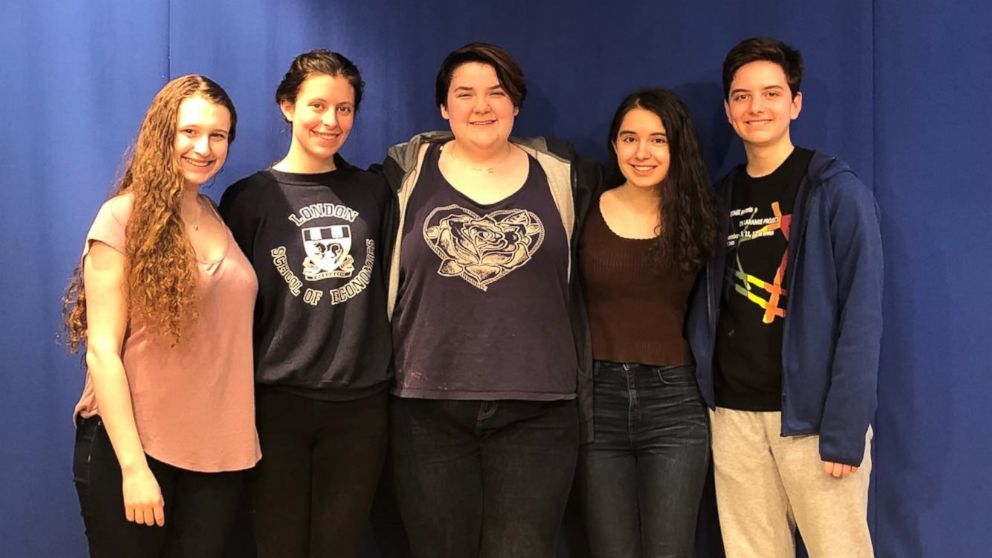


Nearly 300 students who will be among the thousands traveling to Washington, D.C., this weekend to rally for gun control do not have to worry about finding a hotel room in the nation’s capital thanks to a group of teenagers.
Students from Walter Johnson High School in Bethesda, Maryland, have organized a home-share network that has placed hundreds of students in the homes of their classmates’ families for free.
March for Our Lives: Everything you need to know about the #NeverAgain event Parkland students endure emotional and physical wounds a month after massacre“We want to get as many people to the march as possible to show politicians and corporations that if they won’t support us, we won’t support them,” one of the group’s organizers, Gabrielle Zwi, a 17-year-old senior, told ABC News. “The main barriers we saw were transportation and lodging.
“Many of the people are under 18 which means they can’t book their own hotel room and the cost is a big issue too,” she explained.
The student-led "March for Our Lives” was organized by students of Marjory Stoneman Douglas High School in Parkland, Florida, where a gunman killed 17 people and injured others on Valentine's Day. The accused shooter, 19-year-old Nikolas Cruz, was a former student at the school and was armed with an AR-15-style rifle he had legally purchased a year ago, authorities said.
Zwi and her fellow organizers said they felt inspired by the Stoneman Douglas students, who have been outspoken on social media and lobbied politicians for gun control since the shooting.
A bomb threat at Walter Johnson High School in February -- on the same day some of their classmates were at a gun control rally in Washington -- made the student organizers realize they had to do more than sit on the sidelines.
“It was a scared and helpless feeling that there’s a possibility we could die and we don’t deserve to feel like this and no one else should have to feel like this either,” said Michaela Hoenig, 17, a senior at the school. “We’ve grown up our whole lives hearing about school shootings and we’re finally old enough to do something about it.”
Hoenig, Zwi and their classmates, Kate Lebrun, Mai Canning and Emilio Calvo, started by asking on social media if any Walter Johnson families would be willing to open their homes to march participants to stay for free.
They were overwhelmed, they said, with more than 400 responses. The organizers then reached out to Stoneman Douglas students on social media and asked them to spread the word that free housing was available.
“We thought maybe we’d get 25 or 30 students and maybe a few hosts,” said Canning. “It’s really heartening and wonderful.”
The Walter Johnson students have devoted hours outside of school to matching host families with visiting students. They also plan to host a welcome dinner with student speakers on Friday night before Saturday’s rally.
The issue of gun control has struck close to home for the students, who were all born after the shooting at Columbine High School in 1999.
“One of my top choices for college next year is Virginia Tech, so that’s another reason why I was inspired to help,” said Lebrun, referring to the 2007 shooting at the university’s Blacksburg campus that left 32 dead.
The Walter Johnson students have matched students from as far away as California with local families, they said. They have also been buoyed by messages of support from people not even attending the march, including a teenager in Australia and residents of a nursing home in Alaska.
“A lot of us were really politically active before but this has proven to us that we have the capability to organize and the power to make decisions for ourselves and that has been really empowering,” Zwi said. “This is our future and we should be allowed to speak for it.”